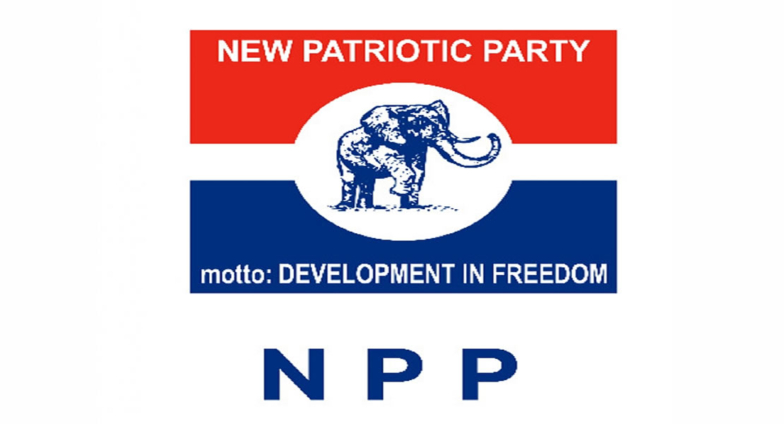
Audio By Carbonatix
The New Patriotic Party (NPP) has recently announced the expulsion of former Member of Parliament Cynthia Morrison and 279 other members, citing Article 3(9)(1) of its 2017 Constitution (as amended)—a clause that authorises the removal of individuals who fail to uphold the party’s principles and loyalty.
While a party’s adherence to its constitution is generally commendable, this move—coming right after the NPP’s disastrous loss in the 2024 elections—could not be more ill-timed or politically short-sighted. Rather than helping the NPP rebuild, these mass expulsions risk further alienating the very grassroots it needs to regain its footing.
Failing to Address the Root Causes
Loyalty is a two-way street. The NPP’s leadership and government oversaw a set of decisions that culminated in widespread dissatisfaction, culminating in a stinging electoral defeat. Casting blame on “disloyal” members ignores the deeper problems: a disconnect with grassroots concerns and a failure to deliver on promises.
Before singling out alleged dissenters, the party should first consider its own miscalculations. Mass expulsions may temporarily silence criticism, but they do nothing to solve the leadership challenges that caused the fractures in the first place.
The Need for Humility
A “miserable loss” should be a moment for honest introspection, not unbridled aggression. Instead of summarily kicking out members who—understandably—expressed disappointment or disillusionment, the NPP should be adopting a posture of contrition.
Many of those expelled may have had legitimate grievances; rather than respecting and learning from that feedback, the party has chosen to vilify it. When a party suffers as great an electoral defeat as the NPP did, humility and open engagement with its base could go a long way toward rebuilding trust.
Alienating the Support Base
Political parties win and lose based on their capacity to rally supporters around common goals. In an environment of tension and uncertainty, unity is paramount. Expelling 280 members en masse only deepens existing cleavages and could discourage new or undecided supporters from joining or remaining with the party. This is not the time to shrink the tent; it is time to patch the holes. If the NPP wants a political comeback, it needs to unite its ranks—not purge them.
Undermining Long-Term Prospects
For a party that is supposed to represent a broad constituency, the optics of a large-scale purge cannot be overstated. Modern political parties must allow room for constructive criticism if they hope to remain relevant and vibrant.
By conflating dissent with disloyalty, the NPP sends a grim message: Conform or be cast out. Such a stance stifles new ideas, repels moderates, and reduces the party to an echo chamber. True political growth and renewal thrive in environments where a variety of voices are heard, acknowledged, and weighed.
A Call for True Leadership and Reconciliation
Now more than ever, the NPP needs leadership that is capable of owning mistakes and seeking reconciliation. Strong leaders do not deny the realities of defeat; they learn from them, extend a hand to those who have strayed, and use every resource available to rebuild.
By halting—or even reversing—these expulsions, the NPP would show that it values unity above short-term displays of executive might. The party would demonstrate maturity, sending a message that it genuinely wants to listen to and learn from its members—no matter how harsh the criticism might be.
Conclusion
In a post-election landscape riddled with the NPP’s own mistakes, the mass expulsion of members is an unfortunate display of hubris rather than humility. Loyalty cannot be enforced by constitutional fiat or threatened expulsions; it is earned through responsive leadership and a sincere commitment to the needs of the party base.
If the NPP hopes to avoid further electoral humiliation, it must realise that now is not the time for heavy-handed punishment but for honesty, mending fences, and rebuilding trust. Any party that forgets this lesson—and chooses division over reconciliation—risks condemning itself to another cycle of loss and irrelevance.
Latest Stories
-
Ghana is rising again – Mahama declares
1 hour -
Firefighters subdue blaze at Accra’s Tudu, officials warn of busy fire season ahead
2 hours -
New Year’s Luv FM Family Party in the park ends in grand style at Rattray park
2 hours -
Mahama targets digital schools, universal healthcare, and food self-sufficiency in 2026
2 hours -
Ghana’s global image boosted by our world-acclaimed reset agenda – Mahama
2 hours -
Full text: Mahama’s New Year message to the nation
2 hours -
The foundation is laid; now we accelerate and expand in 2026 – Mahama
3 hours -
There is no NPP, CPP nor NDC Ghana, only one Ghana – Mahama
3 hours -
Eduwatch praises education financing gains but warns delays, teacher gaps could derail reforms
3 hours -
Kusaal Wikimedians take local language online in 14-day digital campaign
4 hours -
Stop interfering in each other’s roles – Bole-Bamboi MP appeals to traditional rulers for peace
4 hours -
Playback: President Mahama addressed the nation in New Year message
4 hours -
Industrial and Commercial Workers’ Union call for strong work ethics, economic participation in 2026 new year message
6 hours -
Crossover Joy: Churches in Ghana welcome 2026 with fire and faith
6 hours -
Traffic chaos on Accra–Kumasi Highway leaves hundreds stranded as diversions gridlock
6 hours

